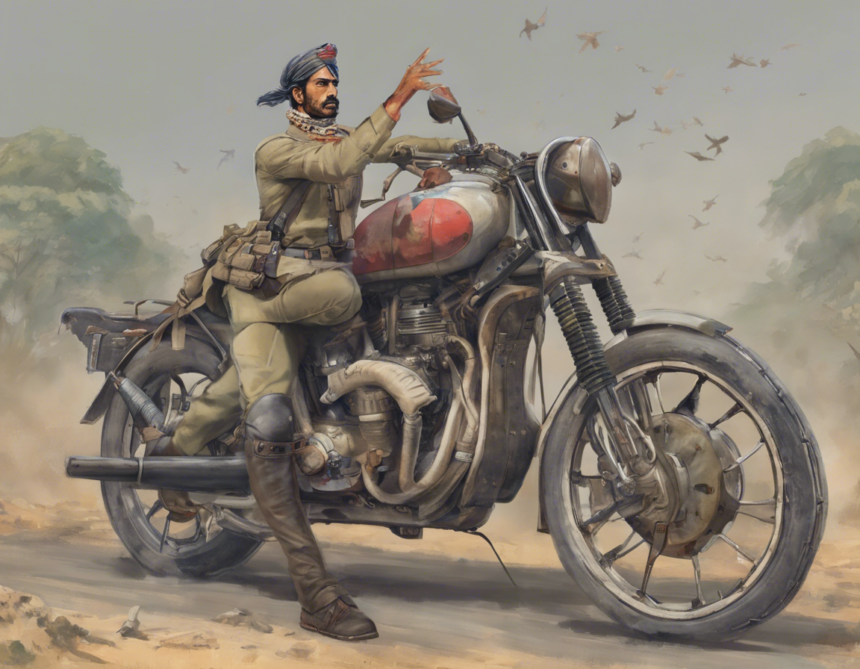Introduction:
Trivarna, whose name translates to “three colors” in ancient Sanskrit, was a revered freedom fighter who played a pivotal role in the Indian independence movement. Born in the early 1900s, Trivarna grew up in a tumultuous time in India’s history, marked by British colonial rule and growing discontent among the Indian populace. Known for her unwavering courage, determination, and commitment to the cause of freedom, Trivarna remains a symbol of resistance and patriotism in the annals of Indian history.
Early Life and Inspiration:
Trivarna was born in a small village in the state of Maharashtra, India, where the echoes of the freedom struggle resonated strongly. Her early years were shaped by stories of valorous freedom fighters like Bhagat Singh, Rani Lakshmi Bai, and Mahatma Gandhi, who inspired her to dream of a free and independent India. Trivarna’s resolve to fight against injustice and oppression was further fueled by the discriminatory policies of the British Raj, which she witnessed firsthand in her community.
The Call to Action:
As Trivarna grew older, her conviction to join the freedom struggle deepened. She actively participated in protests, boycotts, and civil disobedience movements, rallying her fellow countrymen to join the fight for independence. Trivarna’s magnetic personality and powerful oratory skills made her a charismatic leader, drawing people from all walks of life to the cause. Despite facing repression and persecution from the British authorities, Trivarna remained undaunted, believing in the righteousness of her mission.
Role in the Independence Movement:
Trivarna’s contribution to the Indian independence movement was multifaceted. She played a crucial role in organizing secret meetings, distributing propaganda, and mobilizing support for various freedom fighters. Her ability to forge alliances with different political and social groups proved instrumental in building a unified front against the British colonial regime. Trivarna’s fearless acts of defiance, such as hoisting the national flag in public places and leading protest marches, inspired countless others to join the struggle for freedom.
Imprisonment and Sacrifice:
Trivarna’s activism did not go unnoticed by the British authorities, who viewed her as a threat to their rule. She was arrested multiple times and subjected to harsh interrogation and torture in an attempt to silence her voice. Despite enduring unspeakable hardships, Trivarna refused to compromise her principles or betray her comrades. Her resilience and steadfastness in the face of adversity only served to inspire others in the freedom movement.
Legacy and Impact:
Trivarna’s legacy as a courageous freedom fighter endures to this day. Her sacrifices and contributions to the Indian independence struggle have been immortalized in the collective memory of the nation. Trivarna’s fearless spirit and unwavering commitment to the cause of liberty continue to inspire generations of Indians to strive for justice, equality, and freedom. She remains a shining example of determination and courage in the pursuit of truth and justice.
Conclusion:
In the annals of India’s freedom struggle, Trivarna stands out as a beacon of hope and resilience. Her courage, dedication, and sacrifice serve as a reminder of the price paid by those who fought for the nation’s independence. Trivarna’s story is a testament to the indomitable spirit of individuals who stood up against injustice and oppression, inspiring millions to embrace the values of freedom and democracy.
FAQs:
-
Was Trivarna involved in any specific incidents that gained widespread recognition?
Trivarna was known for her bold act of hoisting the national flag at a prominent British administrative building, which garnered significant attention and inspired many to join the freedom movement. -
Did Trivarna collaborate with other prominent freedom fighters of her time?
Yes, Trivarna collaborated with leaders like Mahatma Gandhi, Subhas Chandra Bose, and Sarojini Naidu to strategize and mobilize support for the independence movement. -
How did Trivarna’s imprisonment impact the overall freedom struggle?
Trivarna’s imprisonment only fueled the resolve of other freedom fighters and garnered international support for the Indian independence movement. -
What were Trivarna’s key principles and beliefs that guided her actions?
Trivarna believed in non-violent resistance, civil disobedience, equality for all, and the establishment of a democratic and secular nation. -
How has Trivarna been commemorated in modern India?
Trivarna is remembered through statues, monuments, and various cultural events that honor her role in the freedom struggle and her enduring legacy as a courageous freedom fighter.


Leave a Reply